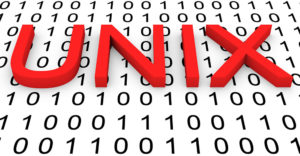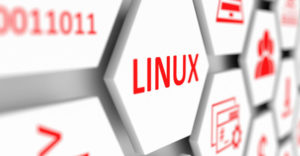After I resolved to adopt Linux, my confidence grew slowly but surely. Security-oriented considerations were compelling enough to convince me to switch, but I soon discovered many more advantages to the Linux desktop.
For those still unsure about making the transition or those who have done so but may not know everything their system can do, I’ll showcase here some of the Linux desktop’s advantages.
You Can’t Beat Free!
First and foremost, Linux is literally free. Neither the operating system nor any of the programs you run will cost you a dime. Beyond the obvious financial benefit of getting software for free, Linux allows users to be free by affording access to the basic tools of modern computer use — such as word processing and photo editing — which otherwise might be unavailable due to the cost barrier.
Microsoft Office, which sets the de facto standard formats for documents of nearly every kind, demands a US$70 per year subscription. However, you can run LibreOffice for free while still handling documents in all the same formats with ease.
Free software also gives you the chance to try new programs and, with them, new ways of pursuing business and leisure without their prospective costs forcing you to make a commitment.
Instead of painstakingly weighing the merits of Mac or Windows and then taking a leap of faith, you can consider a vast spectrum of choices offered by hundreds of distributions — basically, different flavors of Linux — by trying each in turn until you find the one that’s right for you.
Linux can even save money on hardware, as some manufacturers — notably Dell — offer a discount for buying a computer with Linux preinstalled. They can charge less because they don’t have to pass on the cost of licensing Windows from Microsoft.
You Can Make It Your Own
There is practically nothing in Linux that can’t be customized. Among the projects central to the Linux ecosystem are desktop environments — that is, collections of basic user programs and visual elements, like status bars and launchers, that make up the user interface.
Some Linux distributions come bundled with a desktop environment. Ubuntu is paired with the Unity desktop, for example. Others, such as Debian, give you a choice at installation. In either case, users are free to change to anyone they like.
Most distributions officially support (i.e., vouch for compatibility) dozens of the most popular desktops, which makes finding the one you like best that much simpler. Within the pantheon of desktops, you can find anything from glossy modern interfaces like KDE Plasma or Gnome to simple and lightweight ones like Xfce and MATE. Within each of these, you can personalize your setup further by changing the themes, system trays, and menus, choosing from galleries of other users’ screens for inspiration.
The customization possibilities go well beyond aesthetics. If you prize system stability, you can run a distribution like Mint, which offers dependable hardware support and ensures smooth updates.
On the other hand, if you want to live on the cutting edge, you can install an OS like Arch Linux, which gives you the latest update to each program as soon as developers release it.
If you’d rather take the middle path and stick with a stable foundation while running a few programs on the bleeding edge, you can download the source code — that is, the code files written by the program’s developers — and compile them yourself. That requires running the source code through a utility to translate them into files of 1s and 0s (called “binaries”) for your computer to execute.
The Linux system is yours to tweak in whatever ways work best for you.
Lock It Down
This versatility lends itself well to a third major advantage to Linux: security.
To start with, while there are viruses for Linux, the number pales in comparison even to those for Mac. More importantly, the fact that the code for the core OS framework is open source — and thus transparent to evaluation — means there are fewer vulnerabilities in your basic system.
While proprietary (i.e., non-open source) OSes sometimes are criticized as maliciously compromising user security, they pose just as great a threat due to poorly implemented, opaque processes.
For instance, lots of Windows computers, by default, do not check the cryptographic signatures — the mathematically guaranteed seals of authenticity — on OS updates.
With Linux, you can implement as much fine-grained control over signature checking as you choose, and the major distributions enforce safe default settings. This kind of accountability arises directly from the transparency of Linux’s open-source development model.
Rolling release distributions like Arch add even more security, as critical patches are available almost as soon as they are approved. You would be hard-pressed to find a single mainstream OS that offers daily updates, but with Linux, there are dozens.
It’s a Natural Development Platform
With a Linux desktop, developers — or anyone interested in programming — have the added benefit of Linux’s great development tools. Among the best compiling tools around are the GNU C Compiler, or GCC, and GNU Autoconf, both key foundations of Linux.
Linux comfortably supports dozens of programming languages available in most default repositories, which are the pools of pre-compiled software available to a distribution.
Much of the Internet’s infrastructure and many connected devices run on Linux — from servers to smart devices such as security cameras and thermostats. Coding for these devices on Linux makes testing that much easier. If you have a computer-related project, Linux has everything you need to get the job done.
Community Is at the Heart of Everything Linux
Finally, Linux has a tightly-knit and friendly community. Because Linux is a relatively niche desktop OS, with around 3 percent market share, those who use it want prospective newcomers to stick around.
User forums, especially for beginner-friendly distributions like Ubuntu, include comprehensive guides to walk you through the basics and troubleshoot issues. Because power users tend to prefer Linux, wiki pages for distributions often contain thorough documentation — often applicable across distributions — to enable users to pursue even the most esoteric projects.
There are even casual Linux forums and Reddit threads for everything from comparing different software to showing off desktop themes. Taken together, this makes for a community with more camaraderie than I ever experienced as a Windows user.
Immersing myself in the world of Linux for just over two years has convinced me that it offers something for everyone. I hope this brief sampling of its advantages gives you a sense of what you might discover in a Linux desktop. But don’t just take my word for it — the real fun is finding out for yourself!
























































What a BSD desktop does better 😉
over-yonder.net/~fullermd/rants/bsd4linux/01
In my opinion Linux does everything better than Windoze. The problem is not Linux, but people. Most people would rather struggle with the same problems and locked down OS than actually try something new. It is human nature. Not much more needs to be said. Anyone that gives Linux a honest try will find it is a much better operating system. Few will give it an HONEST try. Easier to stick with what you know. Don’t worry though, I am sure MS has your best interest at heart LOL!
As a tech that supports both platforms THAT is NOT true. Windows is great, used by 85% of the world that is no accident. People are the problem but not for the reasons you listed. Windows has a much larger driver base and support than Linux does. Linux is growing but it’s more curiosity than anything else. Companies put money into Windows. PERIOD. Look at the enterprise that use Windows domain, exchange, that also is no accident.. Government tried to switch, failed miserably why? Because Linux has 2 major issues, not clear direction for distro and too fragmented for its own good. Suse, Ubuntu, Centos, Redhat, Linux Mint, or some other hybrid, too much confusion.
I am equally adept on either platform but I started out 100% Windows guy, I was going to switch to Linux even deleted Windows 10 off my laptop and replaced with Elementary and Ubuntu Linux. There is one problem, drivers. I could not solve. never did work right. I have 3 monitors on Windows everything works FLAWLESS, never have a problem with monitor or reconfigure ever. Linux every day I had to reset my third monitor, it was always "disabled". Very annoying. Finally got tired went back to Windows (I need to be productive not messing with settings every day), same hardware Windows works better, so much for your Same problem locked down OS analogy, simply not true. This is one of a few issues, not isolated, Linux is about 95% of the way there but still a long way to go.
Linux also does NOT make the transition easy Linux requires about 30% command line, why are we going back to the 80’s just to install stuff? I can do 100% ALL point and click in Windows and despite what you read Windows is faster than Linux (Windows 10 even more so). Linux is GREAT for some things I think people treat Linux like religion they get tired of people TELLING them what’s good for them and they want to see for themselves what options they have. That’s all this is.
Windows is excellent, mature and everything works, it has built a legacy that Linux would be difficult to surpass, maybe in time but its been what 20 years, how much more time is needed? Windows does a really good JOB it’a all a matter of perspective, I can do more with Windows than you can with Linux I will guarantee you that, even if you just consider one aspect: GAMES! Where are all the Linux game developers.. on Windows that’s where
It’s comments like this that REALLY makes me wonder if you truly understand technology why are you dual booting? Virtualization has been around for at least 10 years, why not run virtualbox on Linux and run Windows in that, no reason to waste space and time with dual boot. You can convert the windows environment to a virtual one in about an hour and users can even use their Windows in a VM EXACTLY the way they left it.
I hope you are not suggesting that the BEST way to convert people is to dual boot, because that will just frustrate people, why reset just to run a Windows program and on top of that there is wine.. don’t need to switch between OS use both at the same time, its these types of posts that set backs users and just makes it that much more difficult to adopt.. and why Windows will be the king for decades to come.
you’re entitled to an opinion. however my big problem with windoze is its pokey, and its not very secure. there’s too many threads running on it relating to sniffing packets & files. the registry is constantly being attacked and things get installed without my consent. I used to spend more time correcting/deleting stuff than I did working. linux does not have these issues. linux stays out of your way so can get your work done. yeah if you wanna "play"? stay with windoze.
There are very very few truly knowledgable resources available for any OS. What I find amazing is how little progress has been made in really making computing more accessible after all these years. My conclusion is that both Mac and Windows are driven by marketing illusions with the idea of lockin and platforms blah, blah, blah. I’m in the process of moving to Linux for the simple reason that I find what I want from a computer is drifting further and further from what the marketing drones at Apple and Microsoft want for me.
kkq5528 may have many legitimate reasons to dual boot. In the case of my living room laptop, I dual boot because it only has 4 GB RAM, not enough to realistically run a host and guest. I only need the Windows side sporadically, so it’s fine that way. Or, there may be some hardware that doesn’t work in a virtual environment (TDM cards in an Asterisk server come to mind).
I agree that virtualizing is the way to go if possible though.
There is also a comfort factor: Some people just aren’t comfortable with not being able to go straight in to Windows. Not logical, but I have run into it several times.
I think as techies we need to realize that doing something like changing from IE to Chrome is a traumatic experience for some folks, let alone an OS change, and they like to have the security of the Windows install still sitting there.
ATL_TECH: It seems to me that you do not install very much software on your Windows 10 system (and previous releases). Windows is notorious for registry problems and unfortunately, the way it is designed, almost any application can make changes to the registry without you knowing and can result in all kinds of problems.
For example, with Win 7, my Bluetooth was working fine. Somewhere along the line I installed something and this caused Bluetooth to no longer work. I could no longer access an external Bluetooth device. I tried de-installing all my Bluetooth drivers and then re-installing Bluetooth. No luck! I tried a number of other things including looking for solutions online. No luck! Launched Linux from an SD drive in the same machine. Bluetooth works perfectly. And this is not the first problem I have had with Windows systems. I have spent huge amounts of time troubleshooting my problems as well as other people’s problems on Windows machines. So for you to say it always works either means you have very little experience with Windows or you are misrepresenting your experiences.
Well said!
I was going to make a retort myself, but you covered all the points.
I too, have cut the "upgrade/malware/software/hardware boosting" ransomware cord.
AND, it just works!
3% adoption? wow that’s up double over just a coupla years ago! a pleasant surprise indeed. anyhow linux rules as far as I’m concerned. I’ve been running it about 13 years now with the last few rarely having to boot win7. only thing I use over there now is tax prep software (TTax). everything is is linux exclusive. and yes it does help greatly is one knows something regarding partitions but its not a necessity if you install to a clean drive.
The only point I tried to make is that for as long as I can remember the same arguments for Linux has been written. Yet the small rises have been mostly credited to Chromebooks not full Linux versions. In terms of Linux users its always been very small and full of distributions of all kinds. I have nothing personally against Linux I use it myself, but I realize it will never be mainstream even though it’s freely distributed. Statistics don’t lie, that Linux on a desktop is not attracting users in a big way and never has.
My guess–although I’ve never seen data broken out to quantify it–is that the desktop Linux share is probably much higher among developers, engineers, and the like than it is among other sub-groups or the general population. Linux will never have a large desktop share in the general population because it isn’t targeted to that audience and doesn’t come pre-installed on ready-to-buy systems unless you buy from a few select companies. I suspect the share of Linux desktops will increase in the future, not because Linux will grow more popular among the general population, but because the general population will be using tablets, smartphones, and thin clients at work instead of desktops. Desktops will become the province of content creators (Mac), gamers (Windows) and engineering/development folks (Linux).
The comment from oshunluvr is extremely well written.
I am also a long time Windows user (since 3.0) and am now running dual boot – Win7 that doesn’t connect to the Internet for software such as CorelDraw, and Mint that connects.
I’m also working on converting people I support from Windows to Mint. So far, it’s been an easy conversion.
I also ask people I support what they NEED their system to do versus what they WANT it to do for them. NEEDS are far more important than WANTS, but wants can’t be ignored. Two of my (now adult) children remain with Windows (Win 10) because they are gamers, but the majority of non-gamers have been or will be converted to Mint.
I also donate. I work IBM Mainframes, where you license your software every year, or it doesn’t run. So, I adopted that philosophy and donate to those working hard on Mint and LibreOffice. Their efforts make my life easy.
Also, regarding Munich’s decision, I wonder how much of that was related to the Distro they chose versus perceived benefits of Windows?
Linux has come a long way in the last few years. Don’t let the other posters here discourage you from trying it. I made the switch 2 years ago and couldn’t be happier. For the average user, Linux just works, especially the larger distros such as Mint, Manjaro, Fedora, Ubuntu as well a half dozen others The bigger distros also have plenty of support online. If you are a hardcore gamer or have some very specific hardware/software needs, then it may have an issue otherwise for the casual user, which is really 80% of everyone, Linux just works. Try it and and see for yourself.
I have to disagree with just about everything you’ve said – other than the point about Linux never winning over the general public, but your reasons are all wrong IMO. It has much more to do with human nature rather than the OS choice itself.
Firstly, The Munich issue is specifically related to the desire of their users to return to MS Office and they are willing to pay the MS ransom for that compatibility. MS is not a software company, but a marketing company. At least, they’re much better at marketing than they are software. And apparently they’re good at lobbying too – in Germany for sure. Personally, I use both MSoffice and LibreOffice. Excel is awesome and Word sucks. I only have MSOffice because my company pays for it.
The value of Support – free or otherwise – is subjective. By your description of tech support, I doubt you’ve actually used any. If you did, you might be of the opinion the those tech support people actually just reading from scripts based on your responses to their inane questions like "Have you rebooted?" On the other hand, when I go to free support forums, boards, or Google+, for help with any OS, SQL, MSOffice, LibreOffice, or whatever problem; I get tons of replies and eventually get what I need, sometimes in just a few seconds – for free. By the way, you can purchase actual good Desktop support from Ubuntu for much less than what you pay for Windows in the end, but it’s really not needed. Find a good user forum instead.
Hardware issues – more specifically your comment referring to not working with Linux – are like 99.9% gone. I personally haven’t run into a piece of hardware that didn’t work immediately with any of my Linux installs in many, many years. There are some outliers like old or odd-ball wifi modems and some not-to-popular webcams. Even most of these can be resolved with a little patience. This issue is not the fault of Linux, but rather caused by the manufacturers. Anyone interested in Linux need only do a quick web search to determine who to buy from and who to avoid.
Application software does have some voids. When I discuss Linux with potential users, my first question is "What do you use your computer for?" Unless there is a specific application they need, most people would actually be much better off with Linux on their desktops. No virus’ to worry about, don’t have to pay to update or upgrade, no sitting and watching the spinning hourglass wondering what exactly the system is doing now. My 77 year old mother-in-law uses Linux on her 12-15 year-old desktop PC because she needs very little in the way of applications (and of course because she has free tech support – me 🙂 ). I can state that since I put Linux on her old PC 6 years ago, she has not had one single problem with the old computer. Prior to that, one of the grandkids would always muck about with it causing issues – not any more.
As to why I do agree with your conclusion regarding the likelihood that Linux will never dominate the Desktop market? Precisely because is is free. Human nature tricks us into thinking that if it’s free it can’t be good – it’s not worth anything. IMO, the only way Linux can become a Desktop giant is if it became with a fee. This supposition proven by your last couple of sentences. Once you stop looking at cost as a factor, you may see – as many Linux users have – that just because it costs money doesn’t mean it’s better. I can’t think of one thing Windows does better than Linux. At least not the important things we do with computers. The public has been tricked into believing the manure MS shovels. That’s the primary function of marketing.
Another reason is the somewhat valid perception that’s there’s work involved to use it. There is, at least first. Since no Linux distro is in league with a PC maker, you have to be willing to learn how to install it. However, once you’re over that hurdle, it no harder to use than any version of Windows that I’ve been unfortunate to have to use. In case you don’t realize it: Microsoft and Apple both design their OSs to need more and more computing power. This is to get you to buy new hardware. There’s many Linux distros out there for people how can’t or don’t want to spend $1000s of their hard earned dollars just so they can send an email once in a while or look up something on the internet. They run just fine on Grandma’s old dusty PC.
BTW, Linux is far-and-away the single most used operating system, just not on the desktop.
I also agree with your opinion that selling Linux solely on the fact that it’s free is a mistake. It’s a factor, but not the top one. However, the article above list FIVE reasons Linux is better. If I was to list them in order of importance, I would say: Security, Community, Customization and scalability, Development, Cost.
Many of the Linux users I know of that are non-technical do in fact use Linux because it’s free. Those few are willing to learn to avoid the MS tax and new hardware merry-go-round. Mostly, Linux desktop users are technically minded people who understand the benefits of Linux and the like choices, control, and security Linux provides – for free.
I myself fall into the latter group and I use Linux at home as well as for work. However for me, Linux is NOT free. I download and install it for free. Then I contribute experience and knowledge, pay for or donate to programs or projects – always with the option of using the software before paying – a clear benefit you don’t often find in the Windows world. I upgrade my hardware when I want something new and I have the money to do so – not when MS says it’s time for a new version of their OS.
Lastly, almost all people I convert or convince to try Linux stay with it. Not because it was free, because it’s better. A very common path is to dual-boot with Windows because there’s one or two applications they can’t find a replacement for or live without. Eventually, they modify their usage and find themselves using windows less and less until they delete the partition and forget all about it.
Unfortunately, what jescott418 is saying is very true. On top of it all, it will be true for many years to come as there is no leadership in desktop linux and the community simply doesn’t understand the common computer user. If Apple and Google ran things the way the desktop linux community does, they would have been out of business shortly after incorporating.
When I read a large town like Munich Germany switching back from Linux to Windows recently. It reminds of how many don’t find all that much positive other than it’s free. Notice how every positive article on Linux has to talk about "free" programs, free distro’s and did I mention its free. Well of course its free, and with free you get whole bunch of free support too. How about free phone support to talk you through that hardware that simply won’t work. Or how little anyone around you knows anything about Linux. There is a reason Linux on the desktop doesn’t hit even 10% on any desktop OS statistics. It’s because most users gravitate to what is popular, easy to get support and runs most familiar applications the world uses. Which oddly enough are also free and well supported. But of course a linux person always mentions that Microsoft Office is so expensive. Of course in Windows you can also run Open office or Libre Office. Sorry I don’t dislike linux but its never ever will win over the general public in any meaningful way. Other than on commercial projects like Chrome OS or Android. But even a Linux distro like Ubuntu doesn’t make much headway in any substantial numbers. Glad the writer enjoys linux its certainly understandable that some feel compelled to use linux as a desktop OS. But stop trying to sell it to everyone on a ridiculous argument that its free so you should use it. Some of the worst products I have ever used were given to me. Free is not always that great. Make a better argument for linux than its free.